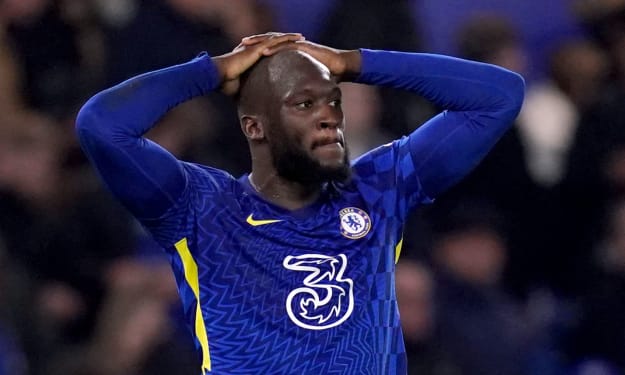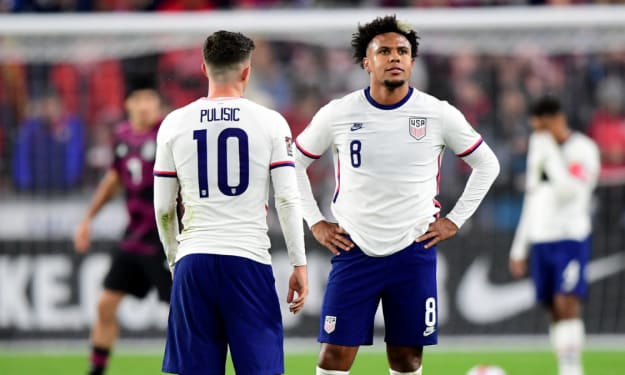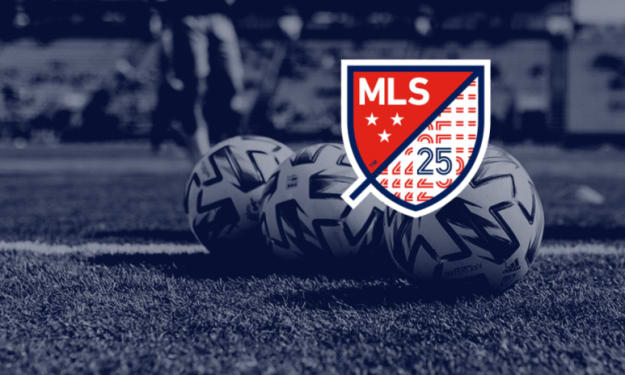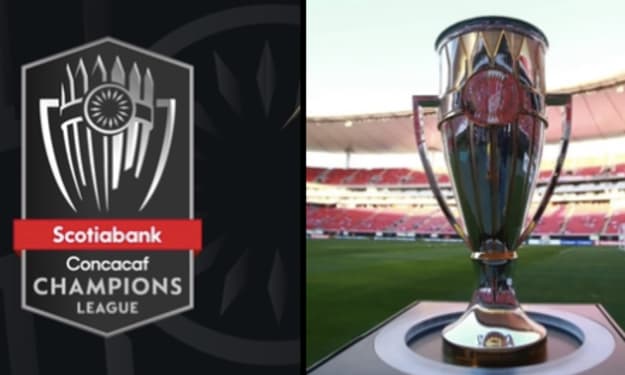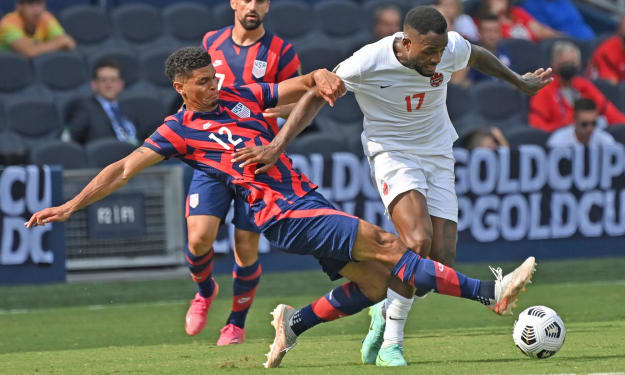Sam Hazelwood
Bio
Avid traveler. Father. Weekend hiker. I enjoy almost every sport but football is #1. My other passion is to write historical fiction. So be on the lookout for my book. Thanks for reading!
Stories (27/0)
US Open Cup: Under Scrutiny
The Lamar Hunt U.S. Open Cup is the longest serving tournament in the American soccer landscape at 109 years old. For many the tournament generates a historical reverence and respect only famous monuments tend to receive. Yet, despite its historical importance to the history of the sport in America, it is under attack by a league (MLS) that for all purposes is in stark contrast to what soccer is in almost every other part of the world. A league with a design to shelter and protect its members from all the unpleasantries clubs elsewhere else have to deal with on a regular basis. I am referencing the exposure teams the world over face when they compete in their national cup competitions. The exposure to “the Upset”. Arguably the greatest aspect of any sport and more directly these nationally held club soccer/football tournaments. The chance of an upset is what gives character to these tournaments. It provides the local media and fans alike the chance, for a fleeting moment, to embrace, enjoy, or commiserate the result of their team's win or loss. It is precisely this emote that encapsulates the mystique and allure that draws in fans new and old. But for Don Garber and MLS, the US Open Cup represents an eye sore, a blemish on the product (MLS) they are trying to cultivate and portray to the world and local viewers.
By Sam Hazelwood12 months ago in Cleats
And the Flag was Up!
Before a ball was kicked that Sunday, the Carabao Cup Final had all the makings of a classic. After all both teams featured in the match were considered the only two sides capable of challenging Man City for silverware and the EPL title. Chelsea were the essence of Tuchelball. A free-flowing brand of soccer that combines and blends defensive resilience into a mosaic of efficiency. After all, Chelsea boasted the second-best defense in the EPL conceding a miserly 18 goals. On the flip side of the coin, there were the high-flying Reds. Liverpool had been awe-inspiring as of late. Using and implementing Jürgen Klopp’s brand of ‘Heavy Metal Football’ or as it’s known in the German manager's homeland ‘Gegenpress’. So the stage was set. Two iconic brands of English football once again locked in an all-important match that could set the tone for the remainder of each season. And with a historic venue like Wembley Stadium, a classic was sure on the cards.
By Sam Hazelwoodabout a year ago in Cleats
Eagles on the Edge
A cloud of uncertainty and consternation has surrounded the US Men’s National Team (USMNT) since the failed qualifying run of 2018. And yet, four years on, in the tail end of the 2022 that same cloud still has not lifted. At times over those four years it may have ebbed and burned off. But only ever for a short time. But like a stubborn fog, the cloud of uncertainty continues to hang over this current generation. Fair or unfair. The expectations of the nation has always been that our national team should never miss the World Cup. This sentiment stemming from the time of our Golden Generations successes in the early to mid 2000’s where we made World Cup after World Cup. So it is that every USMNT player today has been expected to replicate the same level as their previous predecessors regardless of actual talent levels available for selection.
By Sam Hazelwoodabout a year ago in Cleats
Young Guns, echo players of Old
All the kings horses and all the kings men…that’s what it took for the United States Men’s National Team to qualify for the World Cup again. And let’s be clear it was never assured despite what many news outlets and pundits now report or try to portray. Throughout the Qualifying campaign and into the Hex many big name sportscasters doubted the abilities of the current crop of US nationals to qualify for Qatar. And rightfully so. I know I was among that group of non believers.
By Sam Hazelwood2 years ago in Cleats
The Warden
Dear Reader, I have gone off to the woods in order to protect you and others from what I may soon become. I am a normal man. At least I was or still am at this stage of writing this letter. But for how long I don’t know. I work for Edward Jones as a financial advisor. I come home and sleep and rinse and repeat. But strange things have been happening lately. My thoughts and mind are wandering to things and dreams that feel not my own. I have been having visions of places, people and things long forgotten. Of time that has past and things not yet realized. But worst of all are the cravings. The desires that flood my core.
By Sam Hazelwood2 years ago in Fiction
MLS: A League in Need of a Lift
The MLS is a league in the ascendancy. That cannot be questioned. A mere 25 years ago the top flight of US soccer was founded following a successfully held 1994 World Cup in the United States. But six years on from that the league was sputtering and clinging on by a thread. Teams were folding or desperately hanging on to life. Interest waned until the United States Men’s National team made a deep run in the 2002 World Cup which reignited interest among a fan base that was long on the decline.
By Sam Hazelwood3 years ago in Cleats
Continental Size Changes: CONCACAF Champions League
Big news out of CONCACAF this week as the federation continues to try and reshape its image and improve. Today CONCACAF announced the unvieling of a brand new format to its much maligned Champions League. This might not come as much of a shock to some who have long thought of the current format as inferior and lacking scope or prominence on the domestic theater.
By Sam Hazelwood3 years ago in Cleats
Colombia: The History of Political non-inclusion, Social Turmoil and Military Action
The premise of this article is to show the cause and effect of Colombia’s history, politics, economic policies, and overall chaos, which created the perfect conditions for rebel groups to emerge, more specifically the FARC-EP (Revolutionary Armed Forces of Colombia – People's Army or Fuerzas Armadas Revolucionarias de Colombia – Ejército del Pueblo). The history of the time period between the 1920s-1960s is extremely important to the formation of the FARC. The atmosphere of violence in the late 1950s and early 1960s, combined with poor government economic policies, and the rise in popularity of FARC-EP Marxist-Leninist teachings, created the perfect situation for the group’s rise to supremacy in the arena of Colombian insurgency groups. This violence of the 50's and 60's paved the way for the FARC-EP and the increased popularity of their political stance gave them the power to fend off the multiple destruction campaigns of the Colombian government. However, this power was all hinged on civilian cooperation or coercion.
By Sam Hazelwood3 years ago in The Swamp
USA vs Canada
Going into Saturday’s matchup both teams knew that the outcome would be a statement to all of the progress one nation or the other has made going into the final stages of World Cup Qualifying. The choice to play such a highly important match at 4pm local time in Kansas City is questionable at best. Especially considering the temperature was predicted by to be 85F and humid. Some like myself might of thought it would be better to push it back till 7pm when the heat would play less of a factor but that’s just the way of things.
By Sam Hazelwood3 years ago in Cleats
FC Cincinnati: The Winged Lions
Can Lions soar? Well this one just might(but not likely)! Here is a brief recap of this clubs cursory but bright history. Why I think this club has a bright future going forward given the current talent at their disposal and my prediction for how their season will fair.
By Sam Hazelwood3 years ago in Cleats



